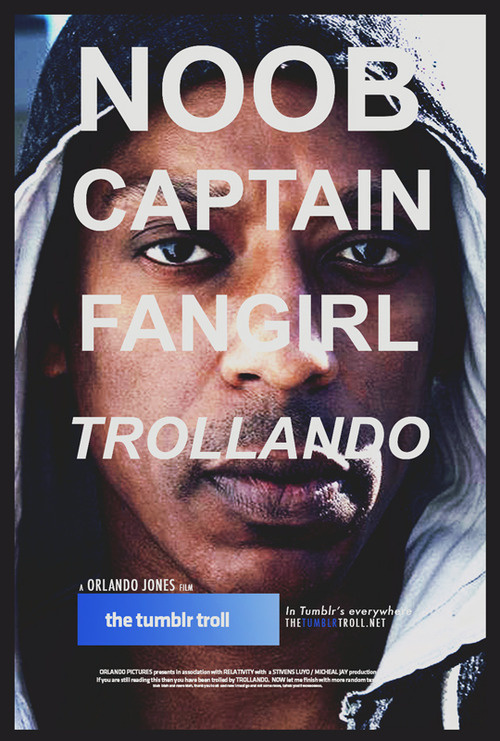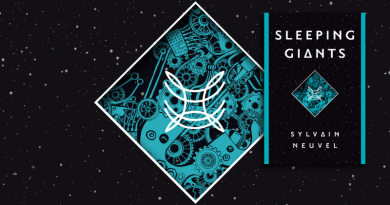This Is Why Year of the Fangirl is Awesome – It Was a Game Changer
 After Year of the Fangirl started doing exactly what Her Universe’s Ashley Eckstein wanted – create a community – I began sharing some of those experiences in a series called “This is Why Year of the Fangirl is Awesome!” So it was pretty awesome to see Ashley Eckstein make The Daily Dot’s list of 10 People Who Changed Fandom in 2013.
After Year of the Fangirl started doing exactly what Her Universe’s Ashley Eckstein wanted – create a community – I began sharing some of those experiences in a series called “This is Why Year of the Fangirl is Awesome!” So it was pretty awesome to see Ashley Eckstein make The Daily Dot’s list of 10 People Who Changed Fandom in 2013.
Fangeek Ashley Eckstein called it first. PC Magazine said it next. Finally, Rainbow Rowell made it definitive: 2013 truly was the Year of the Fangirl. From all walks of life, fans, particularly women in fandom, spoke up to support each other, support their favorite media and stars, and demand diversity and respect from the shows and stories they love.
Being a fangirl is about finding your voice—sometimes a brave and scary prospect in a world that wants nothing better than for young women to be quiet. But finding your voice as a fan often means risking scary interactions over the fourth wall—as the mostly-female Sherlock and Supernatural fandoms both learned the hard way this year. Still, it’s not all thorny—just ask the Hannibal, Sleepy Hollow, and Welcome to Night Vale creators, who’ve been showered with flower crowns all year by fans ecstatic that they’re being listened to. Then there are fandoms like Once Upon a Time and Teen Wolf, who despite bumps in the road in 2013 are learning as they go and doing their best to listen and respect their fans.
Also on the list is Dr. Andrea Letamendi, one of Her Universe’s Fangirls of the Day, who hosted an insightful panel on the psychology of cosplay at GeekGirlCon. Letamendi’s study proved that cosplay is predominantly a female form of fan expression.
The list’s #1 is Rainbow Rowell for her novel Fangirl, which shines a fictional flashlight on the real people who write fan fiction, another form of fan expression that is predominantly female. Only yesterday, Devin Faraci at Badass Digest, in discussing copyright law as it helped propel George Lucas to creating Star Wars, painted fan fiction with a broad brushstroke of “creating disturbing fiction.” It is obvious the perception in the mainstream isn’t the reality of what fan fiction and its community is.
In 2014 FANgirl Blog will be talking a bit more about the fan fiction community, and how it isn’t different than fan art or fan films or fan radio dramas. For now, I’ll leave you with my review of Fangirl.
Rowell gets high marks for her characters, and also for her ingenuity. What she has done with this novel is acknowledge a large segment of the book-reading population, which doesn’t just read – they also write, too. Not only does Rowell acknowledge fan fiction writers, she makes them human and explores why falling into fantasy worlds and living among their fictional characters is often a safe haven. As a novelist, she isn’t mocking the community that writes for the pure pleasure of it, but creating an avenue of understanding for why they do. Fangirl exhibits empathy for the community, and empathy is the one thing that many contemporary stories lack.
You can read the full review here.
Embracing the fan fiction community with open arms is Orlando Jones, who hits the list at #6 and proves that men can fangirl too.
Orlando Jones is the exception that proves the rule. As soon as Sleepy Hollow began this year, he launched himself headlong into its fandom, proving himself to be far from a n00b when it came to concepts like shipping. His Tumblr account is full of nerdy photoshopped selfies and Sleepy Hollow fanart, and he generally seems more clued-in to fandom culture than the official social media reps for most TV shows. He participates thoughtfully in fandom discussions on Twitter almost every day, and even offered to appear in a commercial for Archive of our Own.
Orlando Jones doesn’t just have a healthy respect for fandom like Misha Collins or George Takei—he’s an active participant.

On this month’s episode of Fangirls Going Rogue, Ashley Eckstein told Teresa and I that the Year of the Fangirl will not be ending this year. Perhaps 2014 will be the Year of the FANGIRL?
Tricia Barr took her understanding of brand management and marketing, mixed it with a love of genre storytelling, and added a dash of social media flare to create FANgirl Blog, where she discusses Star Wars, fandom, and strong female characters. She also writes about Star Wars for Random House’s science fiction and fantasy blog Suvudu.com and Star Wars Insider magazine and is a contributor for Her Universe’s Year of the Fangirl. Her FANgirl opinions can be heard on the podcasts Assembly of Geeks and RebelForce Radio Presents Fangirls Going Rogue.
Tricia is putting the finishing touches on her first novel, Wynde – a military science fiction with a fantastical twist that features heroines Vespa and Gemini. For excerpts and tales of her adventures in creating a fictional universe, hop over to TriciaBarr.com.
For updates on all things FANgirl follow @FANgirlcantina on Twitter or like FANgirl Zone on Facebook. At times she tries the Tumblr.
- Hyperspace Theories: The Curious Case of Kathleen Kennedy’s Retirement - March 10, 2025
- Hyperspace Theories: SKELETON CREW Ahoy! - December 29, 2024
- Hyperspace Theories: WICKED Part I Rises to the Moment - December 6, 2024











